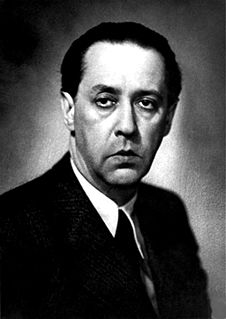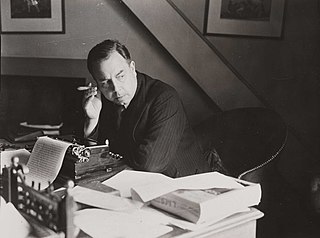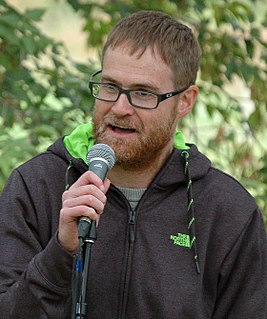A Quote by Walter Lippmann
Between ourselves and our real natures we interpose that wax figure of idealizations and selections which we call our character.
Related Quotes
Character is distilled out of our daily confrontation with temptation, out of our regular response to the call of duty. It is formed as we learn to cherish principles and to submit to self-discipline. Character is the sum total of all the little decisions, the small deeds, the daily reactions to the choices that confront us. Character is not obtained instantly. We have to mold and hammer and forge ourselves into character. It is a distant goal to which there is no shortcut.
No, the secret is that there's no reward and we have to endure our characters and our natures as best we can, because no amount of experience or insight is going to rectify our deficiencies, our self-regard, or our cupidity. We have to learn that our desires do not find any real echo in the world. We have to accept that the people we love do not love us, or not in the way we hope. We have to accept betrayal and disloyalty, and, hardest of all, that someone is finer than we are in character or intelligence.
But the point is, now, at this moment, or any moment, we're only cross-sections of our real selves. What we really are is the whole stretch of ourselves, all our time, and when we come to the end of this life, all those selves, all our time, will be us - the real you, the real me. And then perhaps we'll find ourselves in another time, which is only another kind of dream.
Man stands in materialism; you and I are materialists. Our talking about God and Spirit is good; but it is simply the vogue in our society to talk thus: we have learnt it parrot-like and repeat it. So we have to take ourselves where we are as materialists, and must take the help of matter and go on slowly until we become real spiritualists, and feel ourselves spirits, understand the spirit, and find that this world which we call the infinite is but a gross external form of that world which is behind.
There is provided an escape from the narrowness and poverty of the individual life, and the possibility of a life which is other and larger than our own, yet which is most truly our own. For, to be ourselves, we must be more than ourselves. What we call love is, in truth . . . the losing of our individual selves to gain a larger self.
What we call our destiny is truly our character and that character can be altered. The knowledge that we are responsible for our actions and attitudes does not need to be discouraging, because it also means that we are free to change this destiny. One is not in bondage to the past, which has shaped our feelings, to race, inheritance, background. All this can be altered if we have the courage to examine how it formed us. We can alter the chemistry provided we have the courage to dissect the elements.

































